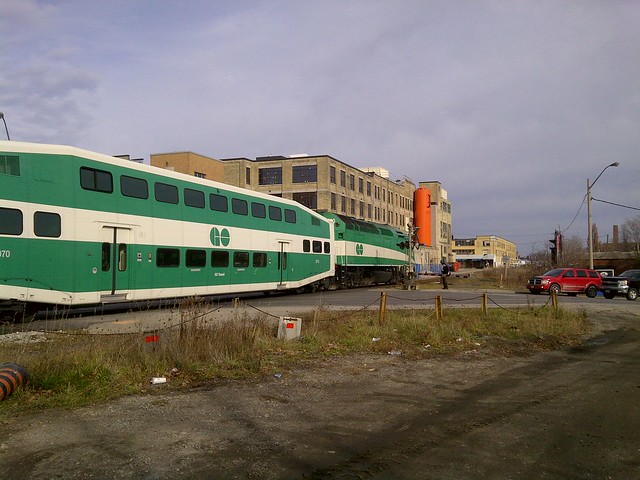
[Updated] Is Greyhound pulling an Uber?
Update: Greyhound has reached out to let us know that they do, through a subsidiary, have a license to operate this service. Please see our new post for an update. Below is the original post.
Greyhound recently launched scheduled service between Waterloo Region and the Toronto Pearson airport, to much fanfare. To many, this is an obvious and useful connection. It is also, as best as I can tell, illegal under Ontario’s Public Vehicles Act.
Ontario has a licensing system for intercity bus service (that we’ve written about before) which effectively grants perpetual monopolies for a private company to run scheduled service on a corridor. GO Transit, the regional transit agency operated by the provincial government, is exempt from these regulations, but prefers to avoid its buses directly competing with private carriers. Last year the Ministry of Transportation put forward a deregulation proposal that is still under review.
Greyhound and Coach Canada are the biggest beneficiaries of the current licensing regime. For Waterloo Region in particular, Greyhound provides the direct service to Toronto, Guelph, and London – and no other private carrier is allowed to. It has poor reputation among riders, but there’s no other direct options. Similarly, Coach Canada provides the direct service to Hamilton. And Airways Transit provides scheduled van service to Toronto Pearson airport.
I was curious how Greyhound dealt with the system given Airways Transit’s license, so I looked up recent issues of the Ontario Gazette (where new license applications must be published). Failing to find anything, I emailed the Ontario Highway Transport Board, and was able to obtain the current operating licenses for Airways Transit and for Greyhound. And indeed, Greyhound’s license not only doesn’t allow airport service; it explicitly prohibits it.
Greyhound is using a move from Uber’s playbook, with the difference that it’s already the dominant player. The same licensing system that serves to protect profitable monopoly routes for Greyhound is the one that it’s apparently breaking in order to get more business.
If this is the case, it is not a tenable situation. If Greyhound can brazenly and intentionally break the rules, then there shouldn’t be anything stopping anyone else from offering service that would break Greyhound’s stranglehold on bus service along the Highway 401 corridor.
Photo credit: Frank Deanrdo, “Greyhound Canada” (Licensed under CC BY 2.0.)




